This is a hands-on review to bring you our early impressions of the new Garmin Fenix &S Pro. Stay tuned, as we’ll be expanding and updating this article with more info soon.
Garmin has unveiled its Garmin Fenix 7 Pro and Garmin Epix Pro watches. These updated versions of the Garmin Fenix 7 and Garmin Epix (Gen 2) retain everything that makes them some of the best Garmin watches, namely by changing only a few things and adding a handful of useful new features.
We’ll dive into exactly what’s new about the Garmin Fenix 7 Pro below – and those hoping for a fully-fledged redesign a la the Garmin Forerunner 265 and 965 might come away disappointed. Those of you who already own a Fenix 7 are unlikely to feel strongly moved to buy another watch.
But as a premium outdoors watch in its own right, the Garmin Fenix 7 Pro looks set to excel as a wonderful example of outdoor smart tech, and in our brief time with the wearable, I’ve found nothing to disprove that so far.
Garmin Fenix 7 Pro: Price and availability
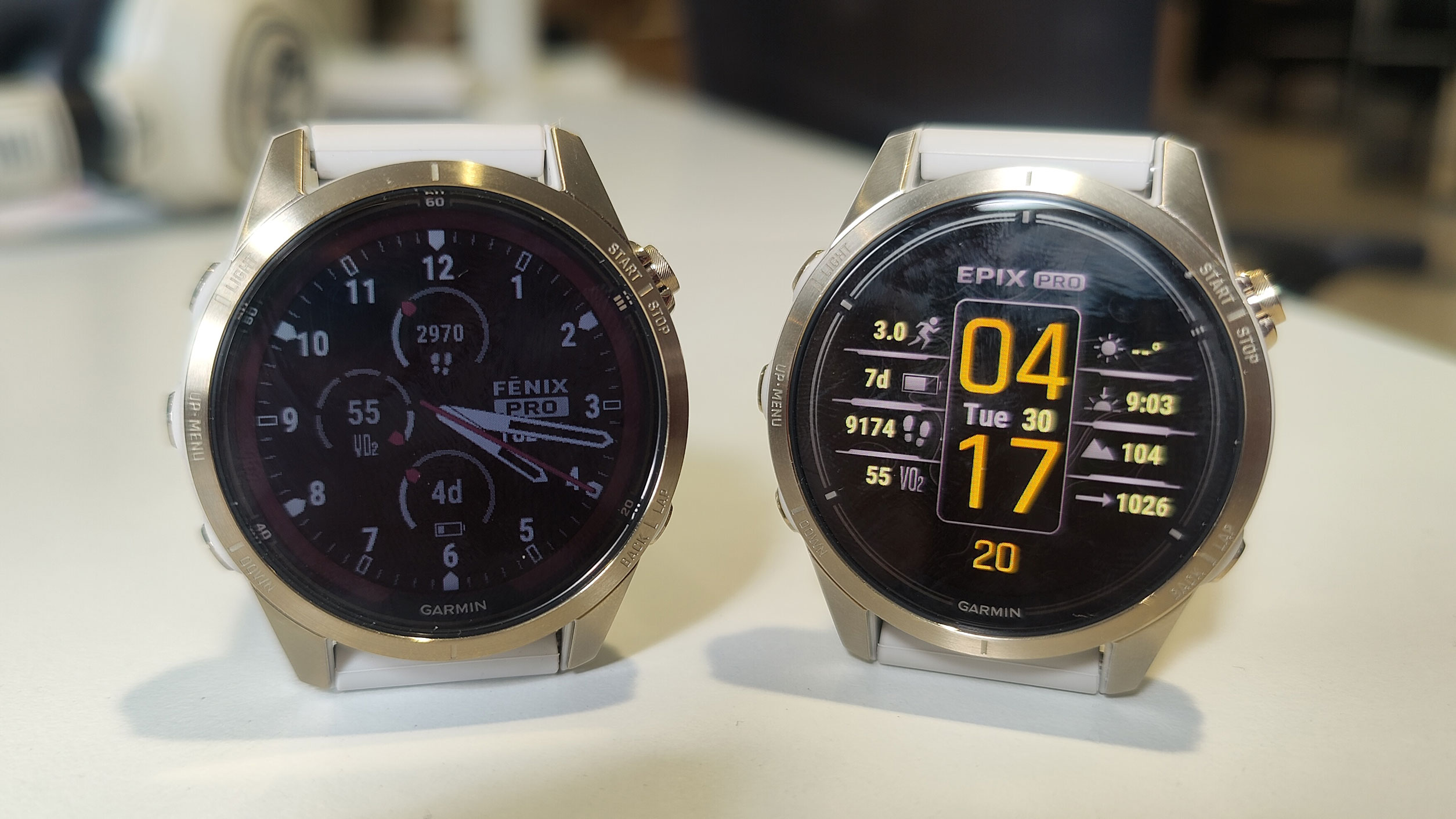
The Garmin Fenix 7 Pro comes in three sizes, like the original Garmin Fenix 7 range; a 42mm Garmin Fenix 7S Pro, in which the S denotes it being ‘small’; a 47mm Garmin Fenix 7 Pro with no size denomination,; and a 51mm 7X Pro. We tested the smaller 7S Pro.
The Fenix 7 Pro range starts at $799.99 / £749.99 / AU$1,349.00 for the 42mm and the 47mm models, rising to $899.99 / £829.99 / AU$1,529.00 for the 51mm model.
You’re effectively paying for more screen real estate and more impressive battery life as you go up the sizes. Whether these are worth the premium remains to be seen, and really depends on whether you’re going to get the most of the middling 47mm Fenix 7 Pro’s battery life or the Fenix 7X Pro’s enormous capacity during multi-day wilderness and trail excursions. However, if you’re the sort of person who doesn’t mind dropping a grand on an outdoors watch, you’re probably someone who’s looking to get the most out of what they buy.
Garmin Fenix 7 Pro: Specs
| Component | Garmin Fenix 7S Pro | Garmin Fenix 7 Pro | Garmin Fenix 7X Pro |
| Price | $799.99 / £749.99 / AU$TBC | $799.99 / £749.99 / AU$TBC | $899.99 / £829.99 / AU$TBC |
| Size | 42mm | 47mm | 51mm |
| Weight | 63g | 79g | 96g |
| Battery life | 14 days, 46 hours GPS, solar | 22 days, 73 hours GPS, solar | 37 days, 122 hours GPS, solar |
| Water resistant | 10ATM | 10ATM | 10ATM |
Garmin Fenix 7 Pro: Design
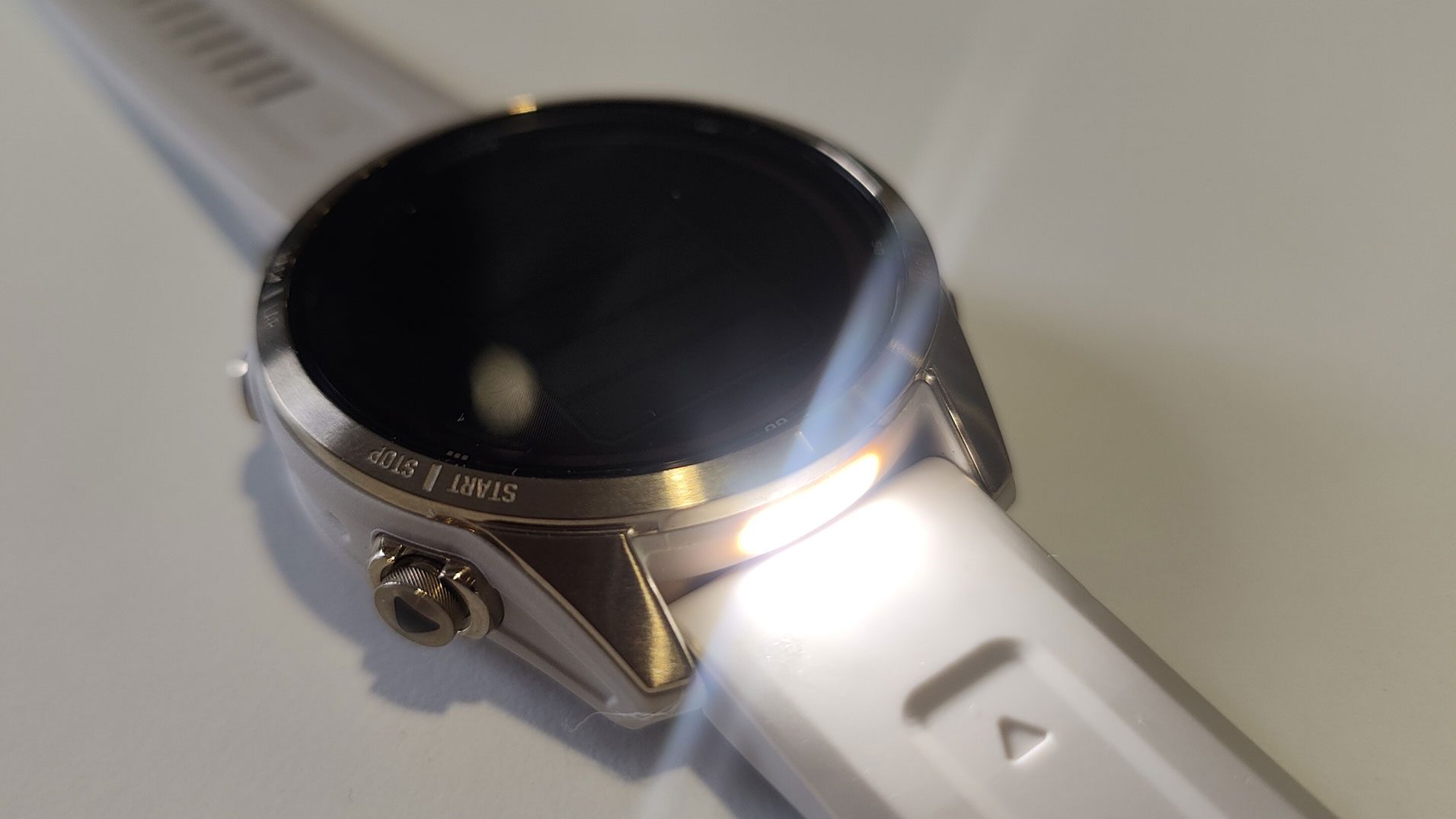
The Garmin Fenix 7 Pro looks very, very similar to the original Fenix 7, with no deviation from its classic five-button configuration. The 7S Pro that I tried was missing the visible screws attaching the bezel to the case from the regular Fenix 7 range on account of its smaller size, and comes in an attractive gold-white colorway rather than the more tactical-looking black or grey of larger watches. It looked good on my wrist, reminding me of my old Moto 360, and more elegant than a typical outdoor watch.
However, it shares the same hardy titanium bezel and dull but economical memory-in-pixel touchscreen rather than the Epix’s gorgeous AMOLED one. For an additional fee, you can get a model with sapphire glass to ensure the screen is tough enough to withstand your outdoor adventures. Even the smaller 7S Pro now has an MIP screen equipped with Power Glass solar charging, a feature usually reserved for larger watches.
That’s not the only hardware change. The older Fenix 7X’s LED flashlight feature has made its way onto the other sizes of the 7 Pro as well. The flashlight is operated by the top-left ‘light’ button, which is usually used to illuminate the screen, or you can access it by calling up the widget menu and using the touchscreen to select it. The light has six settings: a solid white light of four different intensities, a stroble function, or a night vision-saving red light that’s perfect for alerting passing drivers during runs, for example.
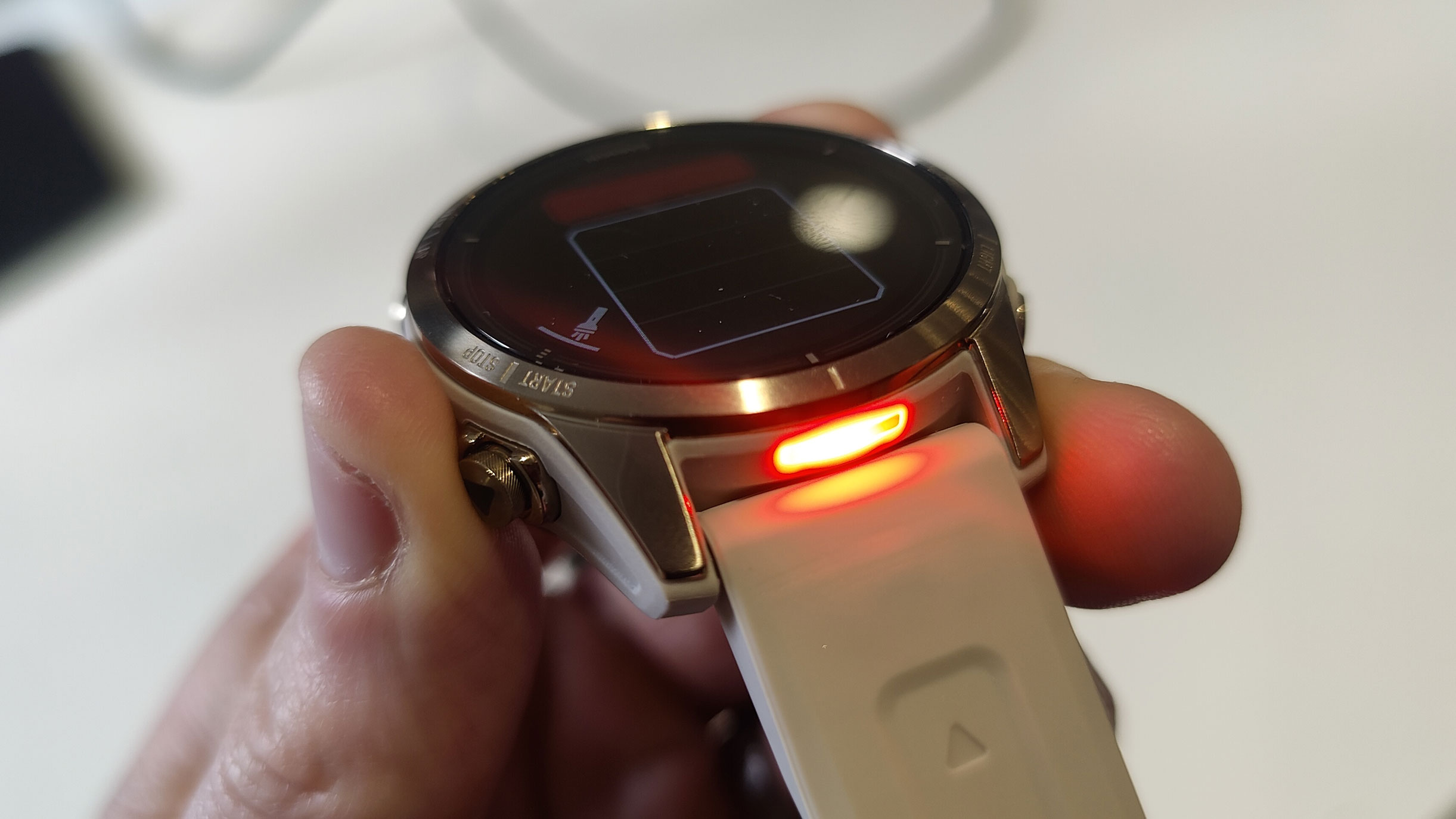
During my initial tests, I found the light perfectly satisfactory. I tested it in a dark room and, er, under my desk, eliciting a few weird looks from my colleagues. The light will clearly illuminate maybe five feet directly in front of you on its brightest setting, enough to look for a dropped phone by, and could serve as an adequate signalling tool in the dark. How much of a drain the light is on the battery is unclear.
New on the design front is also the “spacially diverse optical sensors” which now make up the Fenix 7 Pro range’s rear sensor array. Together with “sport-specific algorithms”, the watch is said to offer better tracking across different workouts, so all those different workout profiles become more meaningful, not just different labels for heart rate and calories burned.
Garmin Fenix 7 Pro: Features
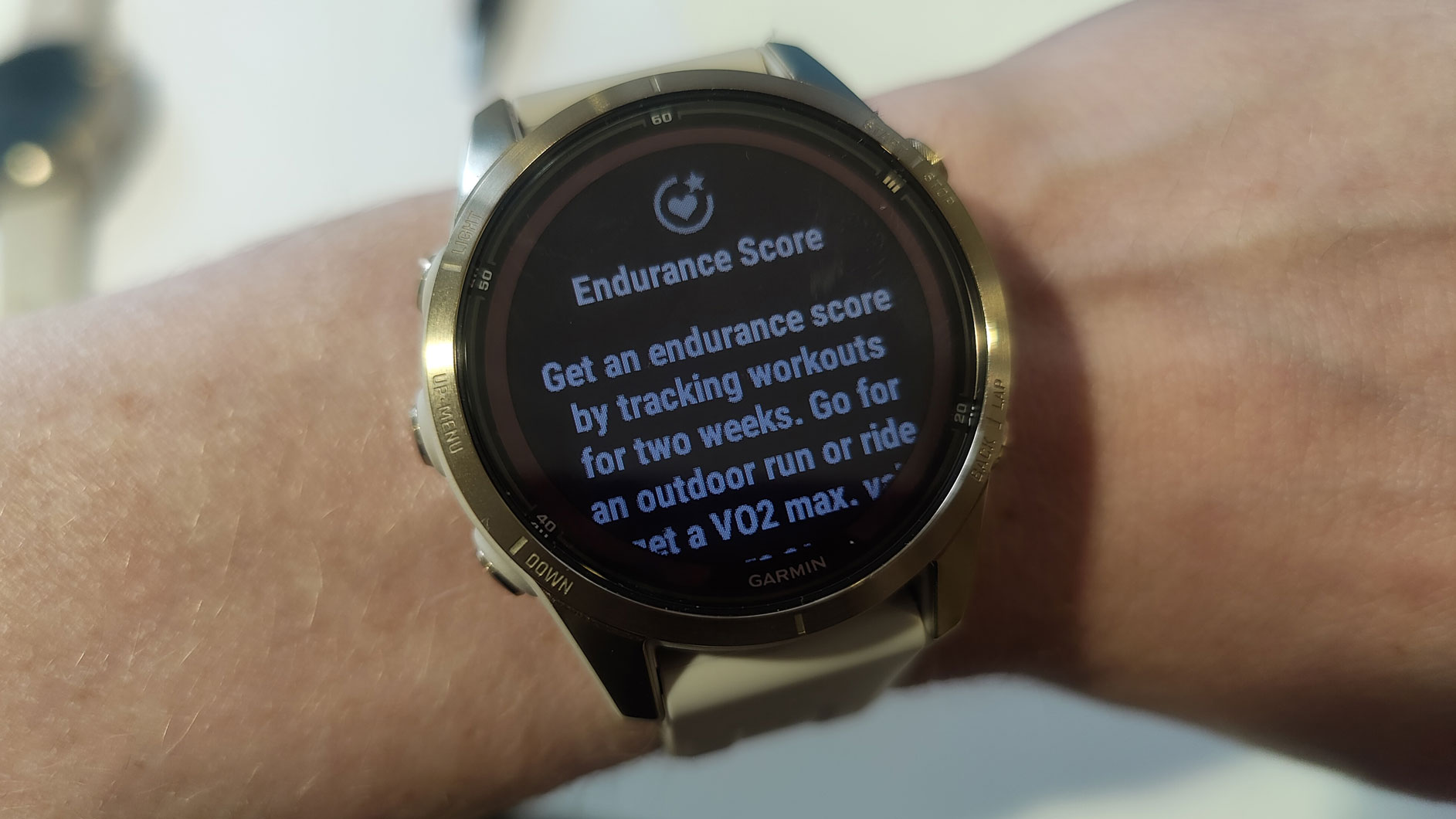
Both the Garmin Fenix 7 Pro and Epix Pro series offer two new Garmin training metrics: Endurance Score and Hill Score. Endurance Score is a numerical value calculated using consistent V02 max measurements, initially over a period of two weeks, which tells you how well your body responds to endurance training. The higher your Endurance Score, which measures how efficient you are at getting oxygen into your muscles, the longer you should be able to keep going at a particular activity.
Hill Score is a little bit different. This is a numerical value representing your power output, or how effective your legs are at propelling you up hills. It’s unclear at this stage whether this is purely for runners, or if cyclists can benefit from Hill Score too, or what existing metrics it’s keyed onto. I’ve reached out to Garmin for more info, and I’ll update this section for my full review. Both features require data from two weeks of workouts in order to calculate your score, so having only spent an afternoon with both watches I was unable to test them.
Elsewhere, topographical maps get a few great new upgrades, including weather services. You’ll be able to tell exactly when the storm clouds are about to hit at a glance with Relief Shading, which highlights areas in different colors based on precipitation. Another cool new feature is Up Ahead, which offers trail runners and cyclists the location of Points of Interest nearby. The example Garmin gives is aid stations during a race, but we’re yet to know if local landmarks can appear on this, which would make the feature useful for explorers as well as for competitors.
A bevy of new workout profiles are also included, such as whitewater rafting, motocross, overlanding and, Garmin says, dozens more. Again, these should gain new relevance beyond labels thanks to the improved sensors and new sports-specific algorithms, but I don’t know any specifics just yet – I’m looking forward to digging into some of the workout profiles to see exactly what sports-specific metrics are on offer. The standard workout screen and widget layout looks and acts the same as before: anyone who’s used a Fenix before, or any Garmin watch for that matter, will feel at home here.
Garmin Fenix 7 Pro: Early verdict
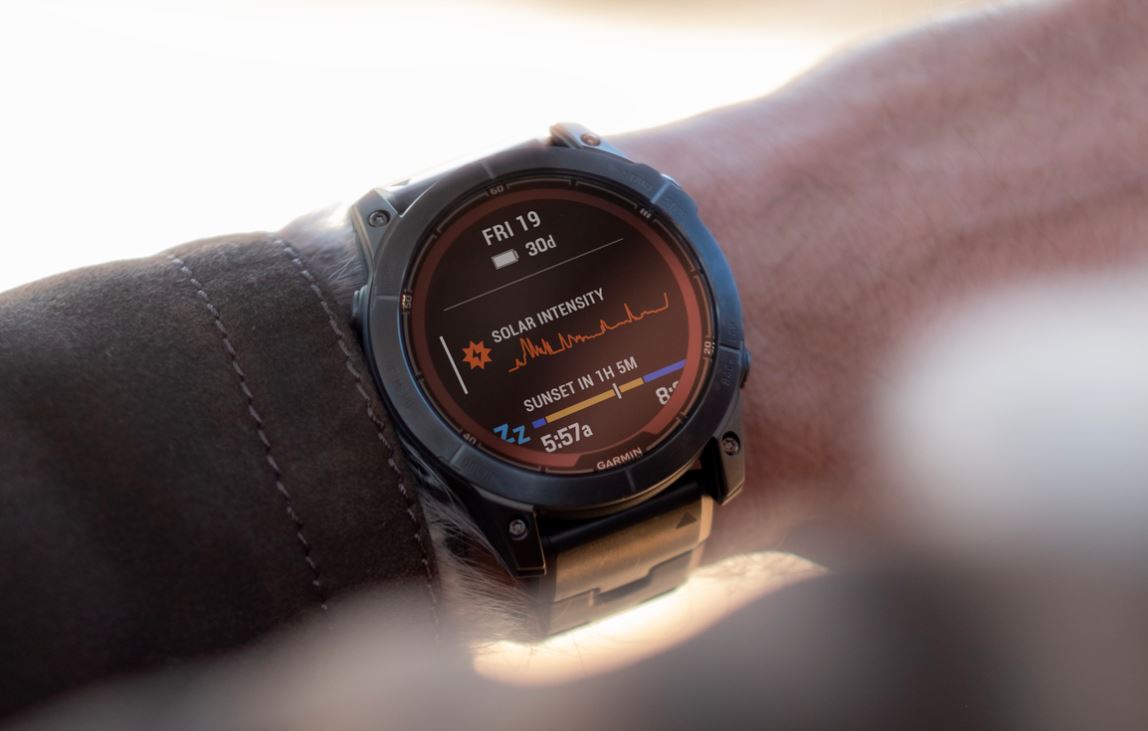
The Garmin Fenix 7 is already one of the best running watches and overall best smartwatches you can buy, and based on our early examinations, the Fenix 7 Pro range only improves on it. We’ll be spending more time testing the 7S Pro in depth for our full review – time will tell if the new features are enough to merit another elusive five-star score.




